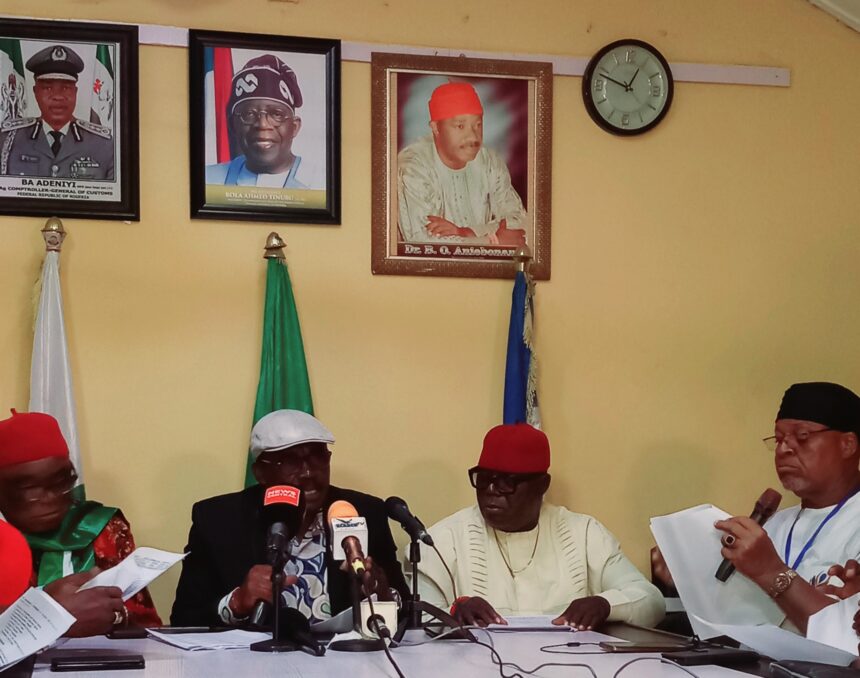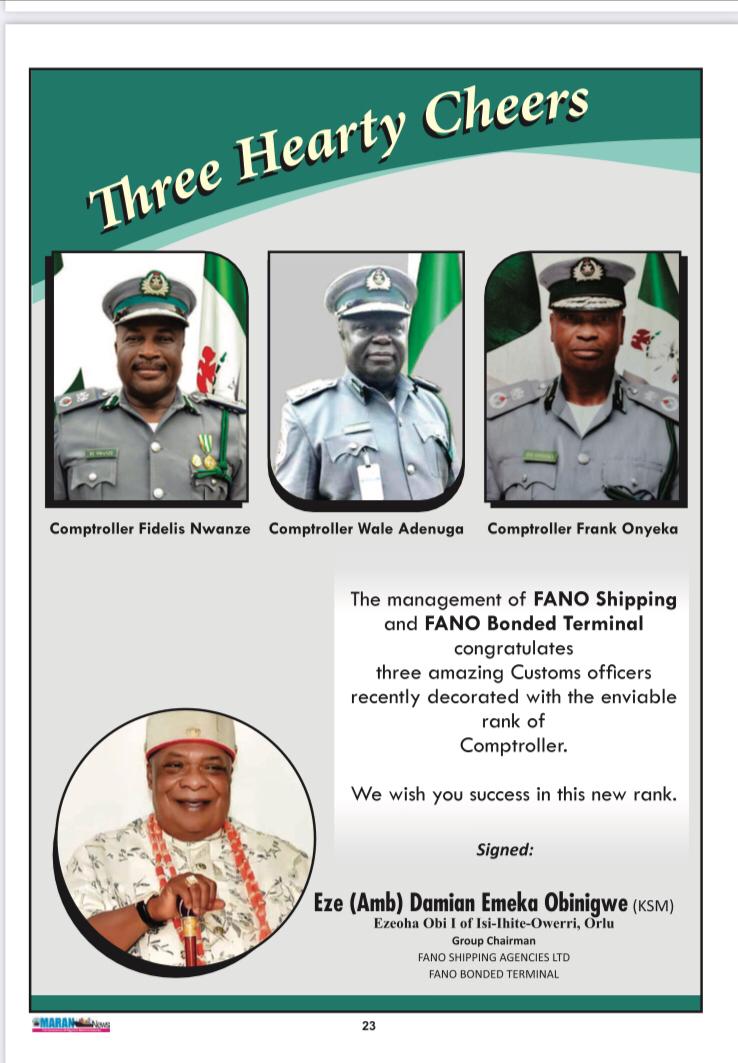By Sandra Chukwunyere
The Freight Anti-Corruption Vanguards of Freight Forwarders of Nigeria (FAVFFN) has taken a significant step towards tackling the endemic corruption in Nigeria’s ports by reinstating its national operational structure. This move is aimed at promoting integrity, transparency, and ethical conduct in freight-forwarding operations nationwide.
According to the National Chairman of FAVFFN, Dr. Increase O. Uche, the reactivation of the anti-corruption vanguard has become necessary due to the alarming rise in extortion, trade malpractices, and systemic abuse of authority by government officials across Nigeria’s ports.
Speaking during a press briefing at NAGAFF headquarters, Lagos recently, Dr. Uche stated that the hydra-headed challenges within Nigeria’s cargo-clearance value chain have become too pervasive to ignore.

He emphasized that the initiative is dedicated to restoring integrity, transparency, and ethical conduct in freight-forwarding operations nationwide.
“The renewed mandate is strengthened by a recent one-day training and sensitization workshop conducted in Lagos in partnership with the Independent Corrupt Practices and Other Related Offences Commission (ICPC).
“The workshop, led by the Lagos State Resident Anti-Corruption Commissioner and his team, reaffirmed the importance of government-industry collaboration in combating corruption”.
Dr. Uche noted that the initiative aligns with the Federal Government’s Renewed Hope Agenda, which prioritizes anti-corruption reforms and efficient port operations as catalysts for national economic growth. Despite the presence of Anti-Corruption Units (ACTU) across relevant agencies, FAVFFN expressed concern over the continued deterioration of Nigeria’s ports.
The Chairman recalled the earlier successes recorded between 2005 and 2009, saying that the deterioration of port management has now reached worrying levels. Corruption persists among several key actors, including shipping companies and terminal operators, customs and other government agencies, importers and exporters, manufacturers benefiting from questionable waivers, and informal transporters and ancillary port users. Dr. Uche criticized the failure of the 2006 port concession reforms, saying their intended goals of transparency, competitiveness, and cost-efficiency remain unrealized, resulting in massive cargo diversion to neighboring countries.
To combat corruption at the source, FAVFFN outlined five major focus areas. These include promoting strict adherence to anti-corruption standards and global best practices through ethical compliance. The organization also aims to deepen collaboration with ICPC and other oversight bodies through strategic partnerships. Additionally, FAVFFN plans to advance industry-wide education through workshops and advocacy programs, establish safe channels for reporting unethical activities, and push for simplified procedures that reduce bureaucracy and curb corruption through policy reform advocacy.
As part of its renewed anti-corruption drive, FAVFFN will empower freight forwarders as “Integrity Champions” trained to recognize, resist, and report corruption without fear of intimidation. The group will begin a systematic examination of infractions across the freight chain, from pre-import documentation to the last-mile delivery of cargo. FAVFFN will also commence the profiling of corrupt government officials operating at Nigeria’s ports to support broader institutional reforms.
The organization urged all port-related agencies, especially the Nigeria Customs Service, to cooperate fully with its renewed anti-corruption drive. Dr. Uche emphasized that the success of this national assignment depends on collective commitment. The aim is to rebuild a freight and logistics system where fairness, professionalism, and ethical excellence are non-negotiable. The re-establishment of FAVFFN marks a significant step towards cleaning up Nigeria’s port environment.

Newspoint247 reports that the FAVFFN says it will intensify enlightenment programs for young freight forwarders across associations to curb emerging trends of corruption.
Dr. Uche concluded by reaffirming FAVFFN’s commitment to safeguarding government revenue, reducing trade bottlenecks, and promoting a logistics sector that supports Nigeria’s long-term economic stability. With this renewed drive, stakeholders are optimistic that Nigeria’s ports will become more efficient, transparent, and corruption-free.














